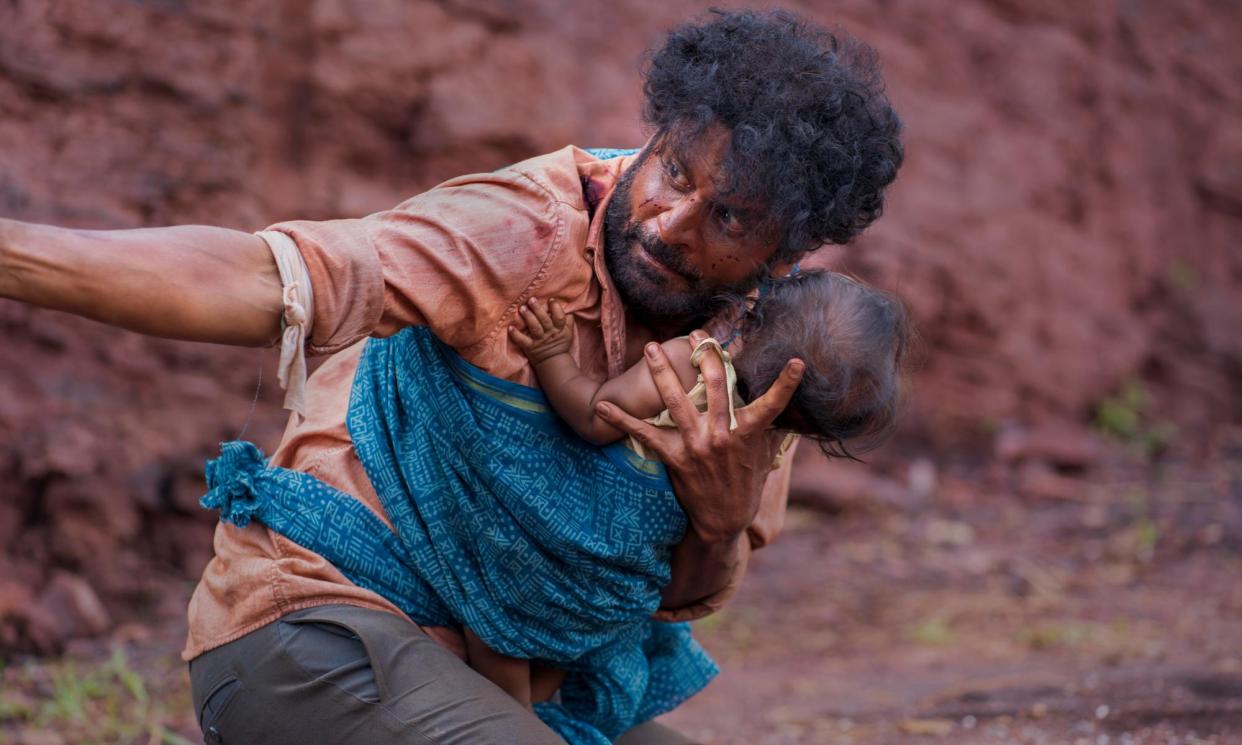Joram review – old and new worlds collide in pressure cooker man and baby-hunt

Where many thrillers programmatically crank up tension with every scene and every beat, Devashish Makhija’s third feature feels different; this manhunt is weighed down by an almost agonised oppressiveness. Joram’s protagonist Dasru (Manoj Bajpayee) is barely able to choose a course of action until compelled out of desperation, and his police pursuer Ratnakar (Mohammed Zeeshan Ayyub) is not much better. There’s no escape in this pressure cooker from omnipresent societal exploitation and cynicism – with only Makhija’s compassion for the marginalised to compensate.
A tattooed member of the “scheduled tribes” from the eastern state of Jharkhand, Dasru lives in exile as a Mumbai labourer. When Phulo Karma (Smita Tambe), a tribal leader from the same region, pitches up on his construction site electioneering, she recognises him from his former life: a jungle rebel fighting against the appropriation of local lands by her husband’s iron-ore mining outfit. Dasru is bewildered when he comes home to find his wife Vaano (Tannishtha Chatterjee) brutally murdered and trussed upside down, forcing him to flee into the streets with his three-month-old daughter Joram in a sling.
Dasru makes a beeline for his Jharkhand heartland, with Ratnakar browbeaten into following. But the chase is all the more convincing because of how shambolic it is, with the setpieces seeming hapless and improvised. It amounts to a reduction of options, not a Hollywood-esque building climax, especially in a riveting sequence in a set of train corridors. Makhija shoots the urban clutter of half-built tower blocks and railway sidings with a jittery noirish lustre, and later loosens up into satire to burnish the theme of “progress” encroaching on rural life. The bent Jharkhand cops, in a region known for totemic tree worship, all keep their mobile phones in little cages attached to one.
This downhill rolling tussle between the modern and the traditional always keeps an eye on a mythic horizon; for example, in the baleful sight of a tree with a terrible meaning as the only thing left standing in a blasted quarry. Tambe holds a formidable death stare as the vengeful magnate, and Ayyub is also good as the empathic Ratnakar. But Bajpayee, who broke out in the gritty 1998 gangster epic Satya, is made for clammy realism; largely mute, clasping his baby bundle, recoiling in panic as his eyes try to flee his head, he is like a refugee from Fritz Lang’s M. A plea on behalf of India’s dispossessed.
• Joram is released in cinemas on 8 December.

 Yahoo News
Yahoo News 
